Farm Boy 牧場の少年 from Final Fantasy VII ファイナルファンタジーVII with sheet music
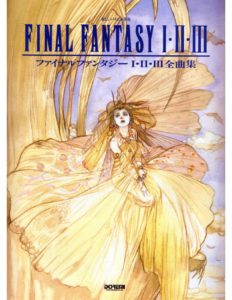
Sheet Music download here.
Music of the Final Fantasy VII series
Final Fantasy VII is a role-playing video game developed by Square (now Square Enix) and published by Sony Computer Entertainment as the seventh installment in the Final Fantasy series. Released in 1997, the game sparked the release of a collection of media centered on the game entitled the Compilation of Final Fantasy VII.
The music of the Final Fantasy VII series includes not only the soundtrack to the original game and its associated albums, but also the soundtracks and music albums released for the other titles in the collection.
The first album produced was Final Fantasy VII Original Soundtrack, a compilation of all the music in the game. It was released as a soundtrack album on four CDs by DigiCube in 1997. A selection of tracks from the album was released in the single-disc Reunion Tracks by DigiCube the same year. Piano Collections Final Fantasy VII, an album featuring piano arrangements of pieces from the soundtrack, was released in 2003 by DigiCube, and Square Enix began reprinting all three albums in 2004. To date, these are the only released albums based on the original game’s soundtrack, and were solely composed by regular series composer Nobuo Uematsu; his role for the majority of subsequent albums has been filled by Masashi Hamauzu and Takeharu Ishimoto.
The Compilation of Final Fantasy VII began eight years after the release of Final Fantasy VII with the release of the animated film sequel Advent Children in 2005. The soundtracks for each of the titles in the collection are included in an album, starting with the album release of the soundtrack to Advent Children that year. The following year, Nippon Crown released a soundtrack album to correspond with the video game Dirge of Cerberus, while Square Enix launched a download-only collection of music from the multiplayer mode of the game, which was only released in Japan. After the launch of the game Crisis Core in 2007, Warner Music Japan produced the title’s soundtrack. The latest album in the collection, Before Crisis: Final Fantasy VII & Last Order: Final Fantasy VII Original Soundtrack, was released by Square Enix the same year as a combined soundtrack album for the game Before Crisis and the animated movie Last Order.
The original music received highly positive reviews from critics, who found many of the tunes to be memorable and noted the emotional intensity of several of the tracks. The reception for the other albums has been mixed, with reactions ranging from enthusiastic praise to disappointment. Several pieces from the soundtrack, particularly “One-Winged Angel” and “Aeris’ Theme”, remain popular and have been performed numerous times in orchestral concert series such as Dear Friends: Music from Final Fantasy and Tour de Japon: Music from Final Fantasy. Music from the Original Soundtrack has been included in arranged albums and compilations by Square as well as outside groups.
Browse in the Library:
| Artist or Composer / Score name | Cover | List of Contents |
|---|---|---|
| Waltz For Debby – Bill Evans (Musescore File).mscz | ||
| Waltz From The Balet ‘coppelia’ (Musescore File).mscz | ||
| Waltz In A Minor F. Chopin (Musescore File).mscz | ||
| Waltz In E Minor Op. 39 No. 4 – Johannes Brahms (Musescore File).mscz | ||
| Ward-Jackson’s Gymnastics For The Fingers And Wrist – based On Anatomical Principles (By Edwin Ward-Jackson) 1874 |
 |
|
| Watermark (Musescore File).mscz | ||
| Watermelon Man (Musescore File).mscz | ||
| Waters of Irrawaddy (Hans Zimmer) from the movie Beyond Rangoon | ||
| Wave – Vou Te Contar Jobim (Musescore File).mscz | ||
| Wayne Shorter – Ana Maria |
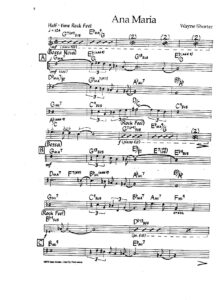 |
|
| Wayne Shorter Artist Transcriptions The New Best of |
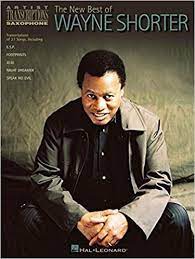 |
Wayne Shorter Artist Transcriptions The New Best of |
| Wayward Sisters – Nocturnal Animals OST (Abel Korzeniowski) | ||
| We are the champions (Queen) | ||
| We Are The World Songbook |
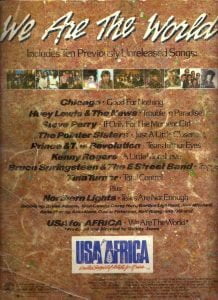 |
we are the world |
| We Shall Overcome Essays on a Great American Song (Book) by Victor B.Bobetsky |
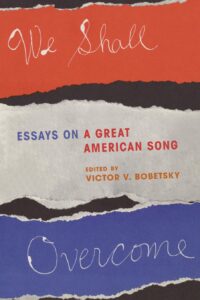 |
|
| We Wish You A Merry Christmas | ||
| We Wish You A Merry Christmas – Anonymous (Guitar arr. sheet music with TABs) | We Wish You A Merry Christmas – Anonymous (Guitar arr. sheet music with TABs) | |
| We Wish You A Merry Christmas – Guitar TABlature |
 |
|
| We Wish You A Merry Christmas (piano solo sheet music) |
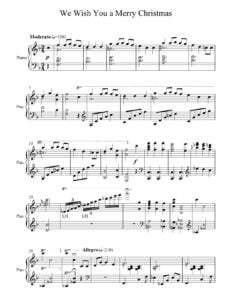 |
|
| We Wish You A Merry Christmas Trad. English Christmas carol |
 |
|
| We Wish You A Merry Christmas Trad. English Christmas carol.mscz | ||
| Weather Report – A Remark You Made (Guitar TABS) | Weather Report – A Remark You Made (Guitar TABS) | |
| Weather Report – The best of Weather Report (Full score) |
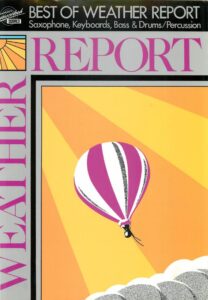 |
Weather Report – The best of Weather Report (Full score) |
| Weather Report Best Of Weather Report Band Score Book |
 |
Best Of Weather Report Us Book |
| Weber – Der Freischütz (Ouvertüre) Piano Solo arr |
 |
|
| Weber – Der Freischütz (Ouvertüre) Piano Solo arr.mscz | ||
| Weber – Der Freischutz Overture piano solo arr. |
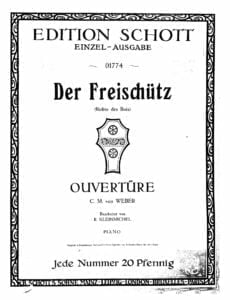 |
|
| Weber op 65 Invitation to the Dance (Invitation to the Waltz) | ||
| Weber’s Last Thought – C.M. von Weber |
 |
|
| Wedding Collection for Piano Solo |
 |
Wedding Collection for Piano Solo |
| Wednesday Morning 3 A M – Simon & Garfunkel (Musescore File).mscz | ||
| Weight Of The World – Nier Automata Piano Collections (Musescore File).mscz | ||
| Weissenberg En Avril A Paris (April In Paris) Charles Trenet |
 |
|
| Well Tempered Praise – Mark Hayes piano |
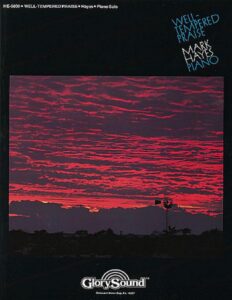 |
Well Tempered Praise – Mark Hayes piano |
| Well Tempered Praise II by Mark Hayes |
 |
Well Tempered Praise II by Mark Hayes |
| Well Tempered Praise III – Mark Hayes piano |
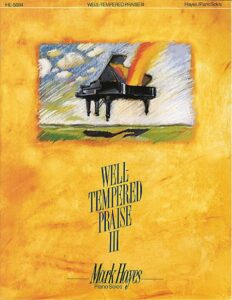 |
Well Tempered Praise III – Mark Hayes piano |
| Well Tempered Praise Vol 4 Gospel Classics by Mark Hayes |
 |
Well Tempered Praise Vol 4 Gospel Classics by Mark Hayes |
| Well-Known Piano Solos – How To Play Them (By Charles W Wilkinson) (1915) |
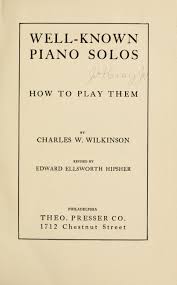 |
|
| Wes Montgomery Wine And Roses By Henry Mancini Solo Guitar |
 |
|
| Wes Montgomery – Unit 7 Solo Transcription | Wes Montgomery – Unit 7 Solo Transcription | |
| Wes Montgomery – Artist Transcriptions for guitar by fred Sokolow |
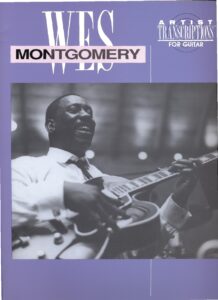 |
Wes Montgomery – Artist Transcriptions for guitar by fred Sokolow |
| Wes Montgomery – Au Privave transcription |
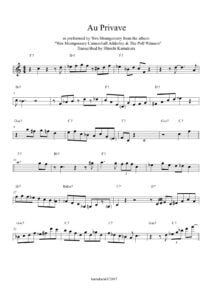 |
|
| Wes Montgomery – Days of wine and roses transcription |
 |
|
| Wes Montgomery – Take The A Train transcription |
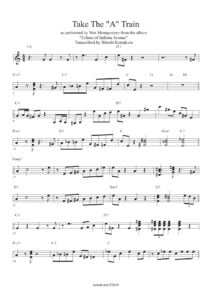 |
|
| Wes Montgomery Essential Jazz Lines (Mel Bay) |
 |
Wes Montgomery Essential Jazz Lines (Mel Bay) |
| Wes Montgomery Jazz Guitar Artistry arr. by Zafar Soood with TABs |
 |
Wes Montgomery Jazz Guitar Artistry arr. by Zafar Soood |
| Wes Montgomery Jazz No Blues Guitar |
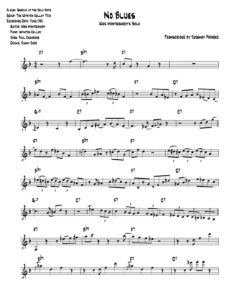 |
|
| Wes Montgomery The Early Years (Mel Bay) Jazz Guitar Solos Tablature |
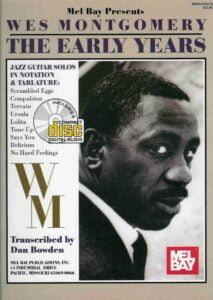 |
Wes Montgomery The Early Years (Mel Bay) Jazz Guitar Solos Tablature |
| Wes Montgomery The End Of A Love Affair Guitar Tabs |
 |
|
| West Side Story – Somewhere (Voice and Piano) Leonard Bernstein | West Side Story – Somewhere | |
| West Side Story (The Musical) Vocal Score Arthur Laurents, Leonard Bernstein, Stephen Sondheim |
 |
West Side Story Vocal Score – Leonard Bernstein |
| Westlife – Cant Lose What You Never Had | ||
| Westlife – Flying Without Wings | ||
| Westlife – If I Let You Go | ||
| Westlife – Mandy | ||
| Westlife – You Raise Me Up Guitar arr. with TABs | Westlife – You Raise Me Up Guitar arr. with TABs | |
| Westlife Unbreakable Greatest Hits |
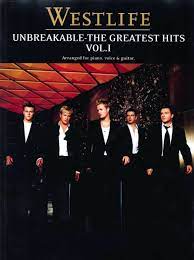 |
 |
| Wet Wet Wet – Love Is All Around | ||
| Wexford Carol (Musescore File).mscz | ||
| Wham , George Michael And Me By Andrew Ridgeley (Book) |
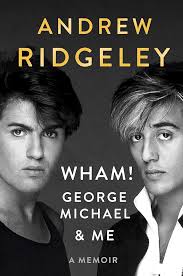 |
|
| Wham Make It Big Piano Vocal Guitar Chords |
 |
Wham Make It Big Piano Vocal Guitar Chords |
| What a Wonderful World – Thiele & Weiss |
 |
|
| What a wonderful world – Louis Armstrong.mscz | ||
| What A Wonderful World (Lead Sheet With Lyrics ) Musescore File.mscz | ||
| What a Wonderful World (lead sheet) – Thiele & Weiss | What a Wonderful World (lead sheet) – Thiele & Weiss | |
| What A Wonderful World (Musescore File).mscz | ||
| What a wonderfull World (Jazz Standard) Guitar Tablature TABs | What a wonderfull World (Jazz Standard) Guitar Tablature TABs | |
| What A Wonderlful World (Lead Sheet) (Musescore File).mscz | ||
| What You’re Made Of – Même Si (Lucie Silvas – Grégory Lemarchal | ||
| What’s That Sound An Introduction To Rock And Its History By John Covach And Andrew Flory (Book) |
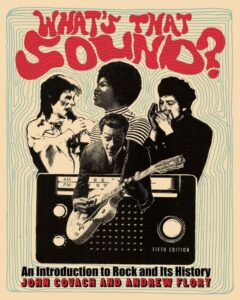 |
|
| When A Man Loves A Woman Calvin Lewis & Andrew Wright |
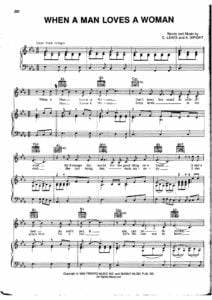 |
|
| When Almonds Blossomed – Giya Kancheli | When Almonds Blossomed – Giya Kancheli-1 | |
| When Almonds Blossomed (Musescore File).mscz | ||
| When I Fall In Love – Victor Young (Bill Evans Ver.) (Musescore File).mscz | ||
| When I fall in love Bill Evans version | When I fall in love Bill Evans version | |
| When I’m Sixty-Four (Beatles) | ||
| When Lights Are Low (Benny Carter) As Played By Miles Davis (Musescore File).mscz | ||
| When The Saints Go Marchin In – Gospel Traditional Folk song (Piano solo with Lyrics) | When The Saints Go Marchin In – Gospel Traditional Folk song (Piano solo with Lyrics) SAMPLE | |
| When The Saints Go Marching In – Fun piano arrangement | When The Saints Go Marching In – Fun piano arrangement | |
| When you told me you loved me (Jessica Simpson) | ||
| When You Wish Upon A Star (Musescore File).mscz | ||
| When You Wish Upon A Star (From The Film Pinocchio) Easy Piano Solo Arr. Sheet Music (Musescore File).mscz | ||
| When You Wish Upon A Star (Leigh Harline and Ned Washington) from Pinocchio Jazz Piano Solo arr. sheet music | When You Wish Upon A Star (Leigh Harline and Ned Washington) from Pinocchio Jazz Piano Solo arr. sheet music | |
| When You Wish Upon A Star (Solo Piano Arr ) David Dinh |
 |
|
| When You’re Gone (Avril Lavigne) | ||
| When You’re Smilling (Musescore File).mscz | ||
| Where have all the-flowers gone (guitar & voice) | Where-have-all-the-flowers-gone (guitar & voice) | |
| While your lips are still red (Nightwish) | ||
| Whistling away the dark (Darling Lili OST) Henry Mancini | ||
| White Album 2 Ending 3 Sayonara No Koto |
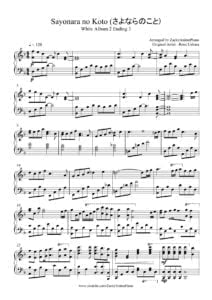 |
|
| White Christmas -Irving Berlin – Piano sheet music |
 |
|
| White Christmas Irving Berlin (Musescore File).mscz | ||
| White Christmas Medley (Liberace) | ||
| White skin like the moon (Jane Eyre 2011 OST) Dario Marianelli | ||
| Whitesnake – Here I Go Again |
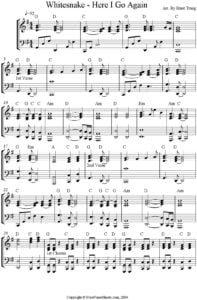 |
|
| Whitesnake Guitar Collection with TABs |
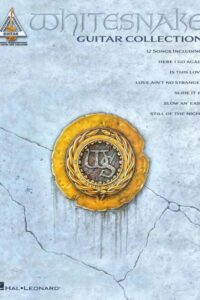 |
Whitesnake Guitar Collection with TABs |
| Whitesnake Is This Love Piano Vocal Guitar Chords | Whitesnake Is This Love Piano Vocal Guitar Chords | |
| Whitney Houston – Jesus Loves Me Sheet Music |
 |
|
| Whitney Houston The Best Of |
 |
Whitney Houston, The Best Of |
| Whitney Houston – I Will Always Love You | ||
| Whitney Houston – It’s Easy To Play Whitney Houston |
 |
Whitney Houston – It’s Easy To Play Whitney Houston |
| Whitney Houston – Saving All My Love For You | ||
| Whitney Houston – The Greatest Hits |
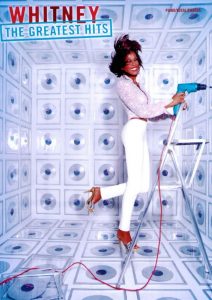 |
Whitney – The Greatest Hits |
| Whitney Houston – The Greatest Love Of All | ||
| Whitney Houston I will always love you | Whitney Houston – I Will Always Love You | |
| Whitney Houston My Love Is Your Love |
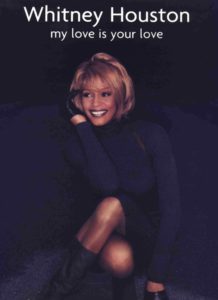 |
Whitney Houston My Love Is Your Love |
| Who wants to live forever (Queen) | ||
| Whole New World Sheet Music, A – Alan Menken |
 |
|
| Why Jazz? A Concise Guide – Kevin Whitehead (book) |
 |
|
| Wicked The Musical Sheet Music Full song Book Music and lyrics by Stephen Schwartz |
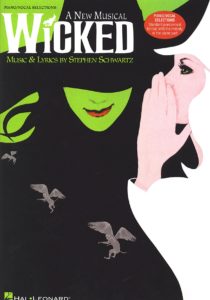 |
Wicked the musical contents — Wicked The Musical Sheet Music Full Book |
| Wieck – Piano Studies | ||
| Wiklund Adolf Fran Mitt Fonster (From my Window) Piano Solo |
 |
|
| Wild – Fantasy On Gershwin’s Porgy And Bess | Wild Fantasy On Gershwin’s Porgy And Bess | |
| Wild Gershwin Seven Virtuoso Etudes | Wild Gershwin Seven Virtuoso Etudes | |
| Wild, Earl – Gershwin Étude No. 4 based on Embraceable You Piano | Wild, Earl – Gershwin Etude No. 4 based on Embraceable You Piano | |
| Wilde Theme (Debbie Wiseman) | ||
| Wilhelm Kempff Musik Des Barock Und Rokoko – Nr. 13 Menuett G-Moll G.F. Händel (Musescore File).mscz | ||
| Will B. Morrison – Melody in F (Syncopated Waltz) sheet music |
 |
|
| Will Young – Anything Is Possible | ||
| William Best I Love You For Sentimental Reasons (Jazz Standard) | William Best I Love You For Sentimental Reasons (Jazz Standard) |
Creation and development

Final Fantasy VII was scored by the series’ main composer Nobuo Uematsu
Nobuo Uematsu composed the music of Final Fantasy VII in less than one year, matching the game’s development time, although he had taken two years to create the soundtrack for the previous title, Final Fantasy VI. Final Fantasy VII was the first game in the series to be developed for the PlayStation, and while the media capabilities of the console allowed for pre-recorded Linear PCM (often as Red Book audio tracks on the CD), it was decided to generate the music in real time on the console instead, using samples and note data. This decision has been credited as giving the soundtrack “a very distinctive mood and feel”, forming a strong association for listeners between the game and its soundtrack.
Uematsu had initially planned to use vocal performances for the game to take advantage of the console’s capabilities, but found that the advanced audio quality required in turn made the game have much longer loading times in each area. Uematsu decided that the quality was not worth the effects on gameplay, though after the release and seeing Suikoden II (1998, PlayStation), which had used higher-quality music instead, he reversed his stance for Final Fantasy VIII. There was a plan to use a “famous vocalist” for the ending theme to the game as a “theme song” for the game, but time constraints and thematic concerns, caused the idea to be dropped. Uematsu has stated, however, that the move into the “PlayStation era”, which allowed video game composers to use sounds recorded in the studio rather than from synthesizers, had “definitely been the biggest change” to video game music.
Uematsu’s approach to composing the game’s music was to treat it like a film soundtrack and compose songs that reflected the mood of the scenes rather than trying to make strong melodies to “define the game”, as he felt that approach would come across too strong when placed alongside the game’s new 3D visuals. As an example, he composed the track intended for the scene in the game where Aerith Gainsborough is killed to be “sad but beautiful”, rather than more overtly emotional, creating what he feels is a more understated feeling. Uematsu has additionally said that the soundtrack has a feel of “realism”, which also prevented him from using “exorbitant, crazy music”.
The first piece that Uematsu composed for the game was the opening theme; game director Yoshinori Kitase showed him the opening cinematic to the game and asked him to begin the project there. The track was well received in the company, which gave Uematsu “a sense that it was going to be a really good project”. He later stated in the liner notes for the soundtrack album that the music for Final Fantasy VII was his “greatest harvest” to date.
Final Fantasy VII was the first game in the series to include a track with digitized vocals, “One-Winged Angel”. The track has been called Uematsu’s “most recognizable contribution” to the music of the Final Fantasy series, though the composer did not expect it to gain such popularity. The piece, described as “a fanfare to impending doom”, is said to not “follow any normal genre rules” and has been termed “possibly the most innovative idea in the series’ musical history”.
Uematsu approached the piece, which accompanies the final battle of the game, in a different manner than previous “boss tracks”: as he felt that using his normal approach would cause unfavorable comparisons to his well-received Final Fantasy VI boss tracks, he instead tried to take a different approach. Inspired by The Rite of Spring by Igor Stravinsky to make a more “classical” track, and by rock and roll music from the late 1960s and early 1970s to make an orchestral track with a “destructive impact”, he spent two weeks composing short unconnected musical phrases, and then arranged them together into a song, an approach he has never used before or since.
The lyrics of “One-Winged Angel”, a Latin choral track that plays at the climax of the game, were taken from the medieval poetry that forms the basis of Carl Orff‘s Carmina Burana, specifically “Estuans Interius”, “O Fortuna“, “Veni, Veni, Venias” and “Ave Formosissima”. Uematsu has stated that the intro of “One-Winged Angel” is based on Jimi Hendrix‘s “Purple Haze“, that the piece revolves around the image of Sephiroth, and that despite the chorus and orchestra, he still thinks of it as a “rock piece”. He said in a 2005 interview that “One-Winged Angel” is his favorite tune from the soundtrack, and in 2004 that it was his favorite battle theme from any Final Fantasy game.
Final Fantasy VII Albums
Original Soundtrack
Final Fantasy VII Original Soundtrack is a soundtrack album containing musical tracks from the game, composed by Nobuo Uematsu and produced by Uematsu and Minoru Akao. It was originally released on February 10, 1997 through DigiCube and later reissued directly by Square Enix on May 10, 2004. The soundtrack spans 85 tracks over four discs and has a combined duration of 4:39:53. A limited edition was produced along with the original album, containing illustrated liner notes with several pictures of Uematsu’s workspace and personal effects, various cutscenes and in-game screenshots from the game, and a discography.
The soundtrack covers a wide variety of musical genres, including rock, techno, orchestral, and choral, although the soundtrack as a whole is primarily orchestral. While many of the tracks were intended as background music, reviewers noted the emotional intensity of several tracks, especially “Aerith’s Theme”, which plays during a moment described as “the most shocking moment in video games,” and has been described as the most memorable track from the album. The theme has become popular among fans, and has inspired various arrangements. Other notable tracks include “Main Theme of Final Fantasy VII”. Themes from this track play during several other tunes from the soundtrack, such as “Words Drowned by Fireworks”, to tie the soundtrack together.
The regular edition of the album reached No. 3 on the Japan Oricon charts, while the limited edition reached No. 19. Overall, the album sold 148,000 copies as of January 2010, with the limited edition selling a further 21,000. The album was well received by critics. Allmusic awarded Uematsu’s original soundtrack a five-star rating.
Ben Schweitzer of RPGFan claimed that “for the most part, it’s a diamond”, with his primary complaint being the quality of the MIDI sound. He found the tracks to be “beautiful” and said that “One-Winged Angel” was “possibly the most innovative idea in the series’ musical history”.
Patrick Gann of RPGFan concurred and found all of the soundtrack’s tunes to be “memorable” and the Original Soundtrack to be “very worth the purchase”. Philip of Square Enix Music Online, however, disliked the sound quality of the soundtrack and saw several tracks as “trivial”, though he did note that Uematsu “has a flair for strong, memorable” pieces. In 2006, IGN ranked the album as the best Final Fantasy soundtrack to date and cited the “gripping” character themes and “One-Winged Angel” in particular as contributing factors. They also named “One-Winged Angel” as the best piece of music from the entire Final Fantasy series.
The original CDs for both releases were only published in Japan and include only Japanese track names. The official English track names were later added to digital releases of the soundtrack.
